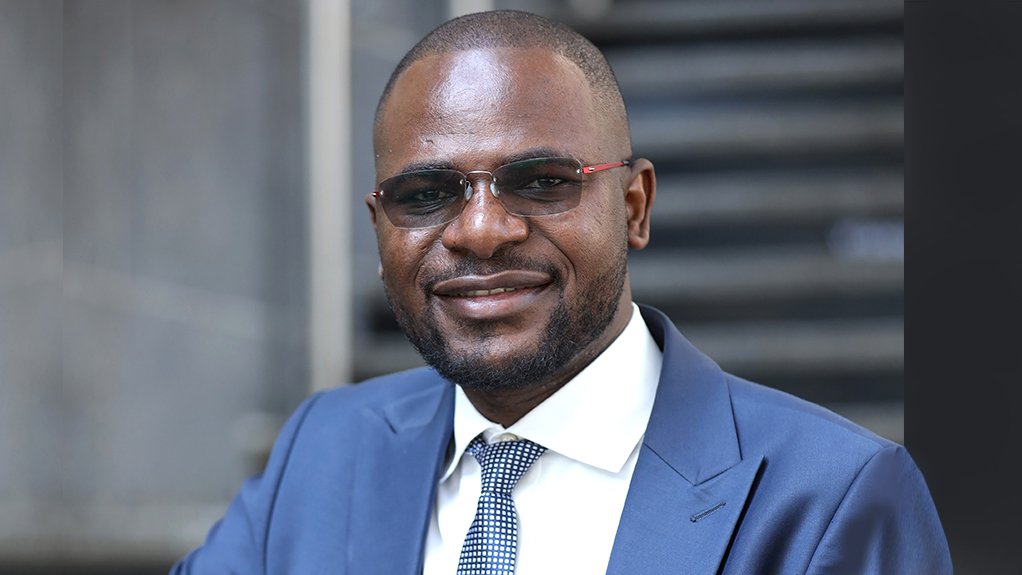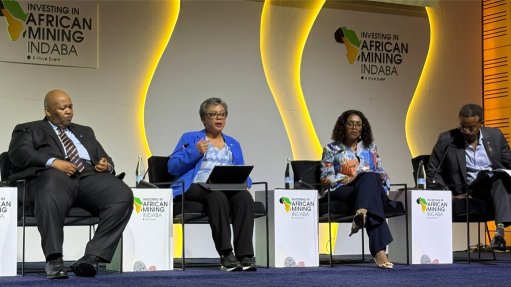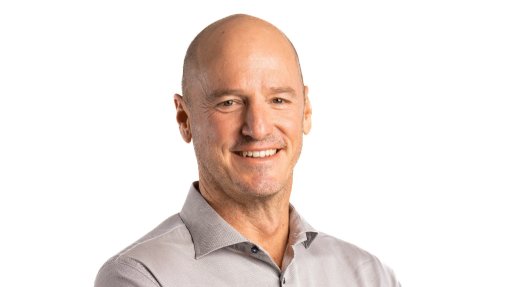African resources to drive global energy transition, but capital to develop remains expensive - RMB
Africa's natural capital of mineral and natural resources underpins the continent’s development agenda and places it at the centre of the global clean energy transition, and demand for critical minerals is projected to surge as the world moves toward net-zero by 2050, says financial services firm RMB.
However, Africa needs financial capital to develop, but access to international markets comes at a cost and currency-risk amplifies the problem, it says in its 'Continent at a crossroads: Africa’s place in the world, today and tomorrow' report.
Further, international aid is tapering off and, while private creditors have become more common, private credit is volatile during crises, which leads to capital outflows during these times.
Combined with the costs of financing debt, this means that African governments have less fiscal space for spending on crucial areas. This challenge is evident in the fact that progress towards sustainable development is stalling, RMB notes.
“The opportunities and resources abundant in Africa have positioned the continent at the heart of global geopolitics, which is a double-edged sword.
“Historically, Africa has often been the object of external agendas, and the challenge now is to convert renewed attention into lasting agency, which will require unity, foresight and skilled diplomacy. Otherwise, the heightened interest risks reproducing dependency rather than empowerment,” the report warns.
Africa’s role in the global economy is shifting rapidly, underpinned by a young population, rapid urbanisation and accelerating digital adoption.
As the continent scales renewable energy, expands intra-regional trade and deepens capital markets, it is becoming a critical engine for future global demand, supply-chain diversification and sustainable development, which creates both significant challenges and massive potential for growth, RMB says.
Technology and innovation are central to Africa’s integration into the global economy. Digital leapfrogging, which is often driven by the need to solve domestic problems, has become a driving force in entrepreneurial innovation.
This makes African startups an exciting prospect for investors, with challenges that drive innovation becoming the key to economic upliftment, the report highlights.
Further, Africa’s demographics are both a challenge and an opportunity. The youngest and fastest-growing population in the world is a catalyst for economic growth and central to Africa’s future position in the global economy, but could become a destabilising liability without adequate investment, it highlights.
Poor governance was identified as the central constraint on Africa’s economic transformation, while regional integration is highlighted as Africa’s potential game-changer, with the African Continental Free Trade Area emerging as a critical pathway for scale, trade efficiency and bargaining power in global forums.
“Africa is a paradox, with a wealth of resources, a burgeoning population and a strategic geographic position at the intersection of global trade routes juxtaposed by a longstanding struggle with weak governance, fragmented markets, underdeveloped infrastructure and an external dependency on aid and extractive industries,” says RMB chief economist Isaah Mhlanga.
Further, while Africa is the region least responsible for global emissions, it is also most exposed to the consequences, and climate change is both an environmental and economic challenge for Africa.
“Africa has historically been shaped by external forces, but this is beginning to change as Africans themselves are increasingly demanding to set the continent’s agenda. The recognition of the African Union as a permanent member of the G20 in 2023 is a symbolic and substantive milestone in this transformation.
“However, African agency requires not only solidarity in international forums, but also a reframing of identity, from being objects of aid and extraction to being proactive shapers of the global future,” RMB says in the report.
Meanwhile, the report identified nine core meta-themes shaping Africa’s trajectory. It also presents three potential scenarios depending on how effectively the nine pillars are addressed.
The first scenario is of Africa rising to the challenge on all three G20 pillars, namely solidarity, equality and sustainability, with a generational expansion of wellbeing and productivity that will transform Africa for the better.
The second scenario depicts strides being made, but without reaching universal progress while the third scenario offers a sombre vision of what is at stake if Africa fails to leverage the current opportunities presented.
“The research in our report is aimed at helping investors understand the Africa of today and make better decisions to shape the Africa of the future. Our intention is that this report enhances our shared understanding of this complex, fascinating and growing continent,” says Mhlanga.
“It provides useful insights and actionable ideas to be applied to help generate prosperity, be it at the continental level, sectoral level or even an individual business. This report may prove invaluable in helping to set Africa on the right course for future prosperity,” he adds.
Article Enquiry
Email Article
Save Article
Feedback
To advertise email advertising@creamermedia.co.za or click here
Press Office
Announcements
What's On
Subscribe to improve your user experience...
Option 1 (equivalent of R125 a month):
Receive a weekly copy of Creamer Media's Engineering News & Mining Weekly magazine
(print copy for those in South Africa and e-magazine for those outside of South Africa)
Receive daily email newsletters
Access to full search results
Access archive of magazine back copies
Access to Projects in Progress
Access to ONE Research Report of your choice in PDF format
Option 2 (equivalent of R375 a month):
All benefits from Option 1
PLUS
Access to Creamer Media's Research Channel Africa for ALL Research Reports, in PDF format, on various industrial and mining sectors
including Electricity; Water; Energy Transition; Hydrogen; Roads, Rail and Ports; Coal; Gold; Platinum; Battery Metals; etc.
Already a subscriber?
Forgotten your password?
Receive weekly copy of Creamer Media's Engineering News & Mining Weekly magazine (print copy for those in South Africa and e-magazine for those outside of South Africa)
➕
Recieve daily email newsletters
➕
Access to full search results
➕
Access archive of magazine back copies
➕
Access to Projects in Progress
➕
Access to ONE Research Report of your choice in PDF format
RESEARCH CHANNEL AFRICA
R4500 (equivalent of R375 a month)
SUBSCRIBEAll benefits from Option 1
➕
Access to Creamer Media's Research Channel Africa for ALL Research Reports on various industrial and mining sectors, in PDF format, including on:
Electricity
➕
Water
➕
Energy Transition
➕
Hydrogen
➕
Roads, Rail and Ports
➕
Coal
➕
Gold
➕
Platinum
➕
Battery Metals
➕
etc.
Receive all benefits from Option 1 or Option 2 delivered to numerous people at your company
➕
Multiple User names and Passwords for simultaneous log-ins
➕
Intranet integration access to all in your organisation





















